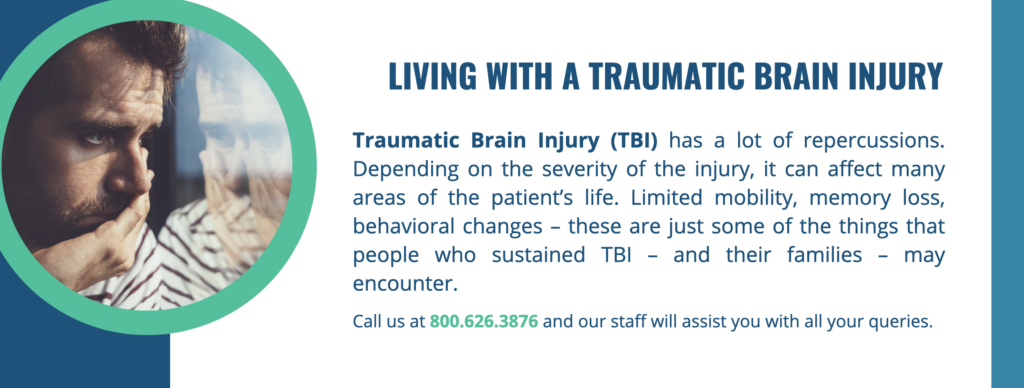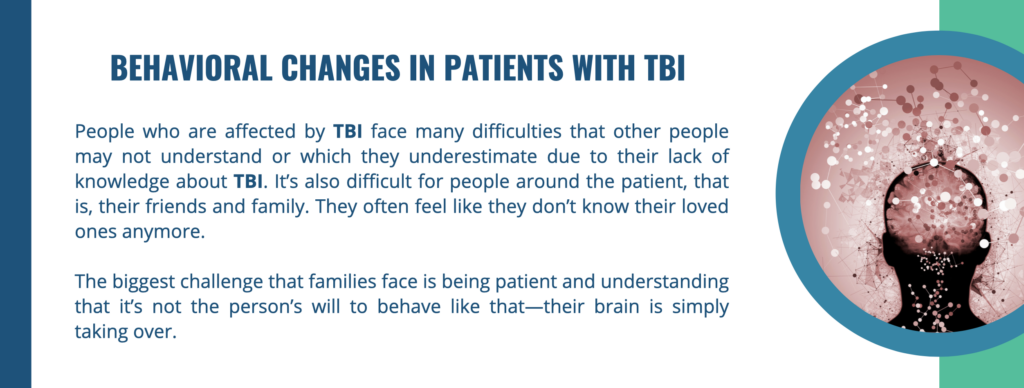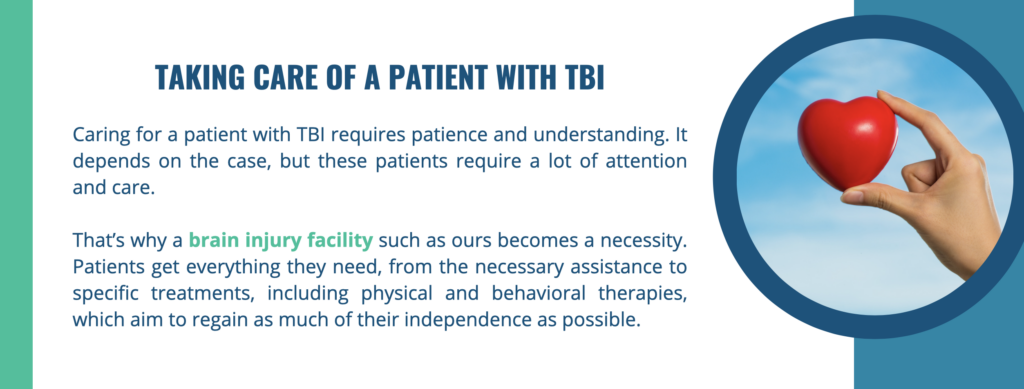The brain influences all human activities including our thinking, our senses, judgement, emotions, and keeping the rest of our body functioning. So it is understandable that a traumatic brain injury (TBI) can have a significant impact affecting every aspect of daily life.
The goal of post acute rehabilitation centers that focus on brain injuries, is to offer healing and treatment so the patient can return home and live their best life possible.
Rehabilitation focuses on how each individual has been impacted by TBI and addresses their specific symptoms. Generally Traumatic Brain Injuries are divided into three categories: physical impacts, cognitive thinking, and emotional/behavioral implications.

Depending on what part of the brain was injured, TBI can have varying degrees of impact on mobility. It can cause:
Every person with TBI has a specific set of physical effects and every patient recovers at their own pace. Treatment plans must be designed to address the individual needs of every patient.
There are several ways a TBI affects cognitive thinking and depends upon the area of the brain that was injured. TBI can have an impact on attention, memory, language, problem-solving, and empathy.
Other possible cognitive effects of TBI may include:
TBI victims may also experience problems with executive functions, which include planning, cognitive flexibility, abstract thinking, rule acquisition (determining right from wrong), initiating appropriate actions, and inhibiting inappropriate actions.
Through neurological rehab, most patients see an improvement in cognitive thinking. Often interventions used in rehab are also practiced at home once the patient is ready to transition.

Finally, TBI can take a toll on emotional and behavioral capacity. Common changes seen in those with brain injury include:
The effects of TBI can be long-lasting, or even permanent. This can be quite distressing for both the patient and their family.
Even patients who are able to make progress in brain injury residential facilities will still face challenges. Both patients and family will continue to face situations requiring adaptation and adjustment to their new reality.
Individualized rehabilitation is key to the return to a functional and independent life. When comparing your rehabilitation options, make sure to choose a comprehensive rehabilitation facility, where individualized care is made the priority.
NeuLife Rehabilitation is one of the best brain injury rehabilitation centers with specialized catastrophic rehabilitation programs for a wide range of catastrophic injuries.
Our programs for neuro rehab are customized to meet the individual needs of each patient, and care plans are structured to promote the highest level of functional independence and successful community reintegration.
With the skills and experience of our highly trained team of clinical experts, we are able to treat a wide range of diagnoses and injuries at our brain injury facility.
If you have any more questions concerning neuro rehab, brain rehab, or any other issue regarding brain injury, give us a call at 800.626.3876 to make an appointment or make a referral now. You can also schedule a tour to visit our best brain injury facility.

The material contained on this site is for informational purposes only and DOES NOT CONSTITUTE THE PROVIDING OF MEDICAL ADVICE, and is not intended to be a substitute for independent professional medical judgment, advice, diagnosis, or treatment. Always seek the advice of your physician or other qualified healthcare providers with any questions or concerns you may have regarding your health.

We know that choosing the next step in your recovery from a catastrophic illness or injury is complex. Together, we can help you take the next step.
Contact us with any questions today.